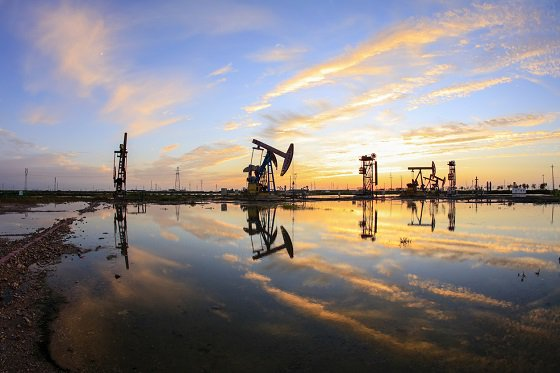War In Ukraine Raises Questions About Pace And Scale Of Energy Transition
Written By: Carter Haydu
The European Union has delivered — with policies of transitioning onto renewables — energy security entirely into the hands of Russia, says Ron Wallace, fellow with the Canadian Global Affairs Institute (CGAI).
“And now, because of the Ukrainian crisis, the magnitude of what has happened here has really in the last few weeks exploded onto the policy agenda,” he told the Bulletin. “Suddenly, you don’t hear a lot of talk about climate in Europe right now. It’s all about security. They’re facing consumer revolts.”
For example, Gazprom PJSC recently halted gas flows to Poland and Bulgaria, with plans to keep the supplies turned off until the two counties agree to pay for the fuel in rubles. The EU has rejected paying in rubles in principle, saying it violates sanctions and strengthens Russia’s hand.
Jeremy Low, managing director, head of European oil and gas at Houlihan Lokey Inc., told an Energy Council webinar that in recent years the investment and banking communities have received clear messages that disinvesting as much as possible from oil and gas is preferable, at least in the medium and longer terms. To now convince banks and equity investors to look more favourably upon oil and gas will take time and leadership.
“With the right level of engagement, we can sort of deliver that financing and that investment,” he said, adding the finance community is “obviously very alert” to the war in Ukraine and the associated risks and energy security issues. “We’re still seeing equity investors dismissing oil and gas as a place where they can place their money and invest. To change those attitudes is not the work of a day or a week. I think it will require a longer-term view.”
Yuriy Vitrenko, chief executive officer at Naftogaz, told that same webinar that the West should not depend on supplies from Russia, and these countries should be “very serious” about getting oil and gas from alternative sources. “These alternative sources would require investments. It was a mistake by some policy makers in the West to de facto discourage investments in the oil and gas sector.”
Many countries find themselves dependent on Russian oil and gas, he noted, because at the same time they were limiting investments into oil and gas supplies from countries where oil and gas is not a “geopolitical battleground,” rogue regimes such as Russia were making such oil and gas investments.
“As an industry insider, I understand that if we really want to fight the climate change, then it’s not about some rushed-up and unbalanced-geopolitical decisions. It’s more about some smart articulation that would encourage, for example, the oil and gas industry to cut CO2 emissions, or would encourage basically more energy-efficient projects.”
Energy security in the news
The Russian invasion of Ukraine has brought issues of energy security and affordability “to the fore” of the larger energy debate at a time when global leaders already are working towards a clean-energy transition, Tim Gould, chief energy economist, International Energy Agency (IEA), told a recent Energy Roundtable virtual event.
Policymakers and companies must be “laser-focused” on building up the clean-energy system, he said, but recent geopolitical events show that oil and gas supply remains vital to stability and security through the transition. As such, there remains an important role for stable, reliable producers (such as Canada) to supply reliably from their reserves while minimizing emissions, according to the IEA.
Energy availability is a key concern for Europeans due to current Russian tensions, Nandita Parshad, managing director, Sustainable Infrastructure Group, European Bank for Reconstruction and Development (EBRD), told an Avatar Ignite event. Short-term, she said, emissions may increase as nations secure energy away from Russian gas. Longer-term, she added, it could speed up the energy transition.
Sara Hastings-Simon, assistant professor and director in Sustainable Energy Development at the University of Calgary, told another session of Avatar Ignite that Germany is taking an “all-of-the-above” approach with regards to satisfying its short-term energy needs during the current energy crisis. However, the Germans still are moving towards transition. If anything, she said, it is accelerating the push towards electrification and renewables.
Sober second thought
Where North America and Europe fully embraced climate action without adequately considering economics, technological feasibility or strategic consequences, Wallace told the DOB, now is the time for a “second look” behind all the assumptions leading up to the current crisis.
“The point is: Using the EU as a reference experiment indicates that this transition won’t be smooth, nor will it be without serious problems. That’s what we’re seeing in the EU and the U.S. right now.”
He added: “Canada is incredibly lucky. Eastern Canada relies on a disproportionate amount of imported oil coming in through Montréal and New Brunswick, but in Western Canada we are so lucky. It’s almost unbelievable. But if you continue to follow these programs and policies to downplay the … of the rational needs for economic and strategic energy use, then you’ll be playing with fire.”
- Sections:
- Cleantech
- Gas/LNG
- New Energy
- Upstream
- Categories:
- Emissions Management
- International
- Natural Gas
- Oil
- Ukraine/Russia


Comments
Post a Comment